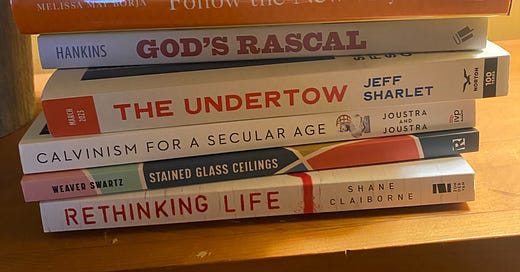Reader be warned: This post got way too long as I had nothing better to do on a lengthy flight except finish a manuscript that I need to endorse, but due to too few hours of sleep I could not accomplish anything so productive. Hence, this.
An alternate title: More than you ever wanted to know about endorsements.
If you’re on Twitter, you can go ahead and…
Keep reading with a 7-day free trial
Subscribe to Du Mez CONNECTIONS to keep reading this post and get 7 days of free access to the full post archives.



